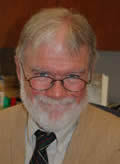
In an absorbing essay over at the First Things blog, William Doino Jr. has issued a useful admonition against The Flight from Hell that indifference toward eternity or overconfidence about salvation which he believes suffuses so much of contemporary Catholic preaching, teaching and life.
To exemplify this dangerous misunderstanding, Doino cites a superficial and glib assessment made by the former priest and present pundit James Carroll: “The achievement of Vatican II is the astonishing rapidity with which the ruthless God of omnidirectional damnation disappeared from Catholic life, and with Him the acutely felt dread of Hell — ‘infinite pain, infinitely felt, forever.’”
I suspect Carroll was being a little bit excitable when he wrote that. Although he is a few years older than me, I lived a fair amount of my childhood before the Second Vatican Council and had little acquaintance with that ruthless God he describes. Oh sure, I can remember one hair-raising homily in our parish church during which the pastor thumped the coffin-lid for emphasis as he bellowed: “It’s too late for Arthur now!” But all of us — even I, then a very recent First Holy Communicant — knew that the Monsignor was nuts, and one of the reasons people continue tell the story is that the incident was so unusual and bizarre.
But if Catholics have become as forgetful of eternity as Doino suggests, the amnesia hasn’t yet spread to the liturgies and homilies on and around the Notre Dame campus, where I generally go to Mass. Not very long ago, for instance, at a Mass in Our Lady Seat of Wisdom Chapel in Malloy Hall, we heard an arrestingly brief sermon on the parable of the rich man and the beggar Lazarus. “Our Lord couldn’t possibly make it clearer,” the homilist said. “If we ignore the poor, we will burn in hell forever.”
Eschatology, literally “the study of what comes last,” is indispensable to Christian life. We know we will die and be judged and be gloriously transfigured or hideously disfigured as a consequence. That should give us plenty to think about.
And it does. In the Latin Mass of my altar boy days, the phrase “per omnia saecula saeculorum” (literally, “through ages of ages”) was heard over and over again and is still heard throughout the English Mass as “forever and ever.” And, pinioned and wounded by time as we may be, “forever and ever” is the context in which Christian believers must live.
“Forever” can be a challenging context indeed. In grade school, well-meaning, if theologically clumsy, Dominican sisters taught us that unbaptized babies who died went to live forever in a place called “Limbo,” which was exactly like the world we inhabited except that there was no suffering there and much natural happiness. We who were baptized were encouraged to pity those poor children in Limbo, though, because they would not enjoy a thing called “the Beatific Vision,” which, at least as the sisters described it, sounded depressingly like a solemn high Mass which went on forever and ever. Thus condemned to an endless liturgy, we baptized children sorely envied our unbaptized counterparts and longed ourselves to be perpetually indulged in merely natural happiness.
But even if Heaven isn’t, as the nuns suggested, an endless liturgy, and even if it really does involve, as Saint Paul promised, “things that no eye has seen and no ear has heard, things beyond the mind of man, all that God has prepared for those who love Him,” it is disquieting to think that it goes on forever and ever. It is disquieting to think that anything goes on forever and ever.
Perhaps this is why believers take eternity so seriously. Whether I am to live in heaven with Sydney Smith, “eating paté de foie gras to the sound of trumpets,” or in hell with James Joyce with “the blood seething and boiling in the veins, the brains boiling in the skull, the heart in the breast glowing and bursting, the bowels a red-hot mass of burning pulp, and the tender eyes flaming like molten balls,” I dread living forever. More precisely, I dread living forever as the sort of person I am now.
“Those who know their need of God” are among the paradoxically blessed people of the Beatitudes. People who can honestly see little appreciable difference between Heaven and Hell, people who regard eternity of any kind, who regard eternity itself as a simple, stark, unbearable prospect, are people who have begun to learn their need of God. They are people who know that they must be transformed. If they are Catholics, they are people who have begun to learn what they are praying for when they pray at Mass “May the Body and Blood of Christ keep me safe for eternal life.”
Michael Garvey is Notre Dame’s assistant director of public relations. Email him at garvey.2@nd.edu.